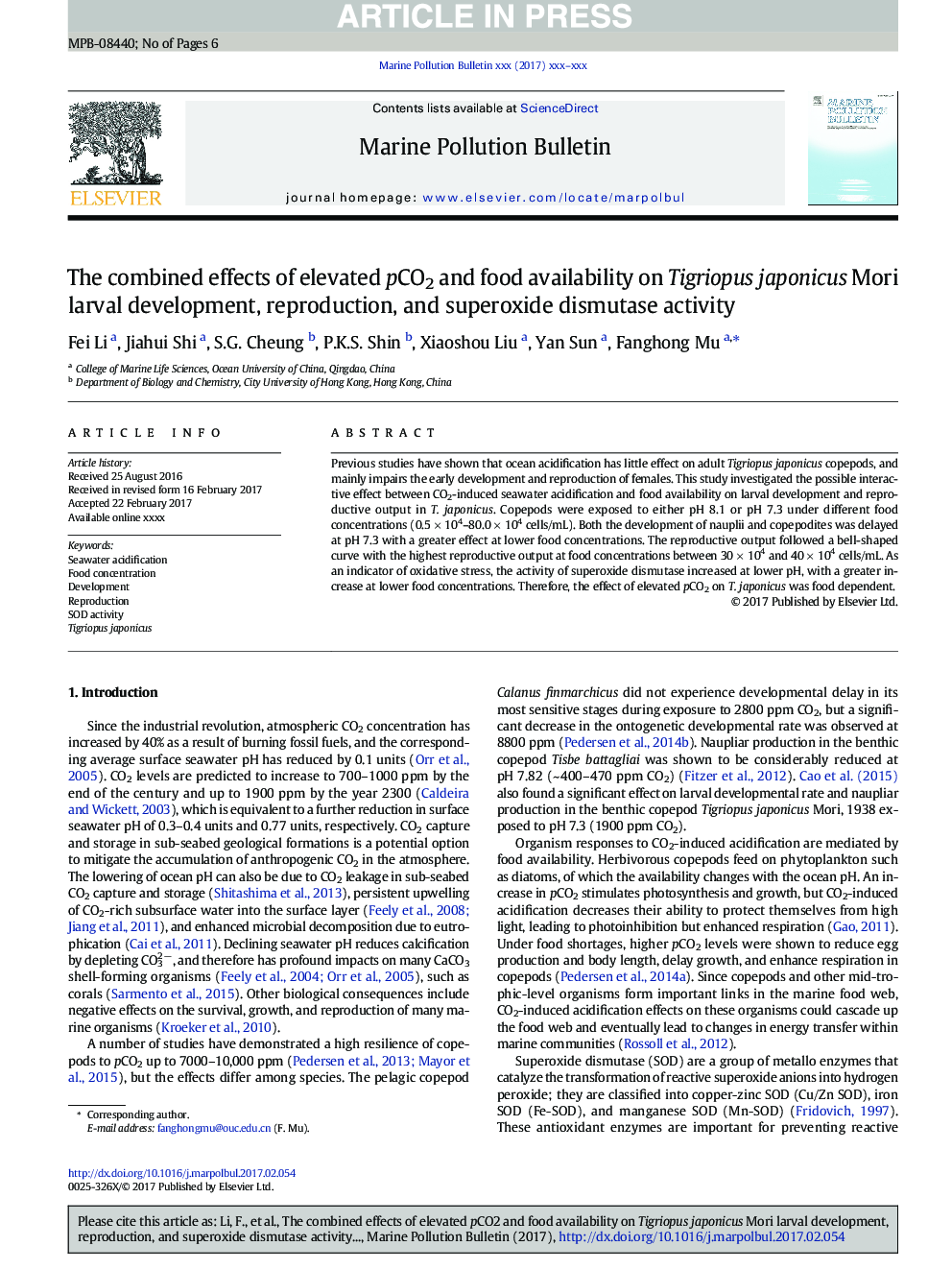| Article ID | Journal | Published Year | Pages | File Type |
|---|---|---|---|---|
| 8872317 | Marine Pollution Bulletin | 2018 | 6 Pages |
Abstract
Previous studies have shown that ocean acidification has little effect on adult Tigriopus japonicus copepods, and mainly impairs the early development and reproduction of females. This study investigated the possible interactive effect between CO2-induced seawater acidification and food availability on larval development and reproductive output in T. japonicus. Copepods were exposed to either pHÂ 8.1 or pHÂ 7.3 under different food concentrations (0.5Â ÃÂ 104-80.0Â ÃÂ 104Â cells/mL). Both the development of nauplii and copepodites was delayed at pHÂ 7.3 with a greater effect at lower food concentrations. The reproductive output followed a bell-shaped curve with the highest reproductive output at food concentrations between 30Â ÃÂ 104 and 40Â ÃÂ 104Â cells/mL. As an indicator of oxidative stress, the activity of superoxide dismutase increased at lower pH, with a greater increase at lower food concentrations. Therefore, the effect of elevated pCO2 on T. japonicus was food dependent.
Keywords
Related Topics
Physical Sciences and Engineering
Earth and Planetary Sciences
Oceanography
Authors
Fei Li, Jiahui Shi, S.G. Cheung, P.K.S. Shin, Xiaoshou Liu, Yan Sun, Fanghong Mu,
